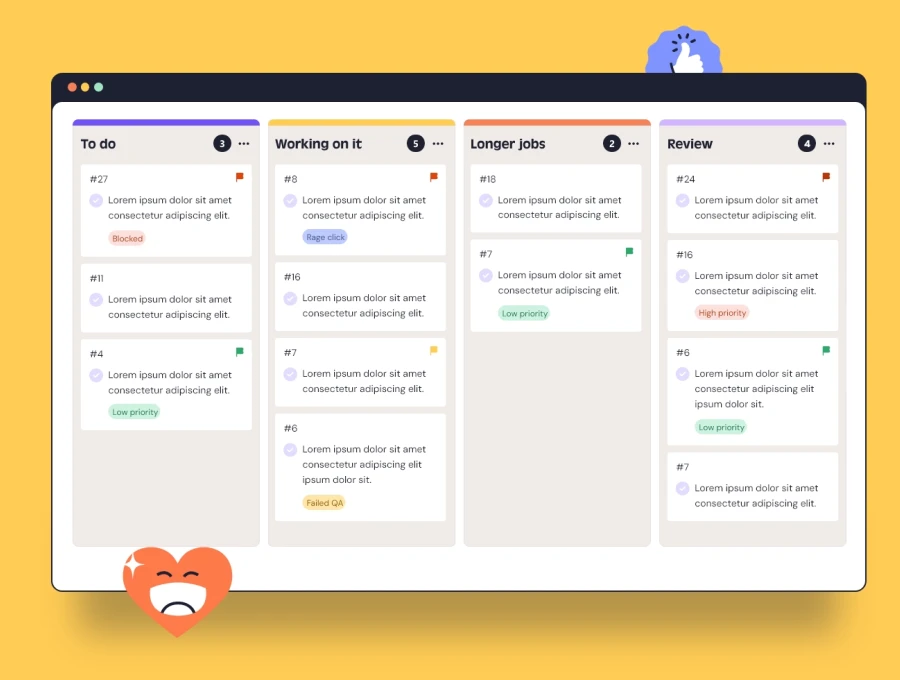In the dynamic world of software development, every line of code written is a step towards innovation and problem-solving. Developers are the unsung heroes, weaving the intricate webs that form the backbone of our digital existence. However, the path of a developer is not always paved with glory; it is often littered with bugs, errors, and relentless negativity. These challenges, though technical in nature, have profound impacts on the mental health of developers.
The Weight of Bugs on Developers
Imagine working meticulously on a piece of code, only to find it riddled with bugs. The process of identifying, understanding, and fixing these bugs can be daunting. Each raised bug is not just a task to be completed; it often feels like a personal affront to the developer's skills and capabilities. The constant scrutiny and the expectation to deliver perfection under tight deadlines can create a stressful environment.
Developers are problem-solvers by nature, but the repetitive nature of debugging can lead to frustration and burnout. The negativity that accompanies frequent bug reports can erode a developer's confidence and job satisfaction. This, in turn, affects their overall well-being and productivity.
The Emotional Rollercoaster of Development
Beyond the technical challenges, the emotional journey of a developer is filled with highs and lows. The joy of solving a complex problem or successfully deploying a feature is often overshadowed by the anxiety of impending bug reports. The fear of criticism from peers and managers adds another layer of stress. In some cases, the pressure can lead to mental health issues such as anxiety, depression, and burnout.
It's crucial to recognize that developers are not just cogs in a machine; they are creative individuals who thrive in supportive and positive environments. The culture of constant criticism and negativity can stifle creativity and innovation, leading to a less motivated and less productive team.
QualityHive: A Platform with a Purpose
At QualityHive, we understand the invisible toll that constant bug reports and negativity can take on developers. Our mission is to create a platform that not only helps in identifying and fixing bugs but also ensures that the process is as enjoyable and stress-free as possible. We believe that a happy and mentally healthy team is a productive team.
QualityHive is dedicated to fostering a positive environment where developers feel valued and supported. Our platform is designed with the well-being of the team in mind, offering tools that streamline the bug-fixing process and reduce the burden on developers. We focus on creating an intuitive and collaborative space where the emphasis is on growth and learning rather than blame and criticism.
Promoting Mental Well-being in Development Teams
Promoting mental well-being in development teams requires a holistic approach. It starts with recognizing the importance of mental health and creating a culture of empathy and support. Here are some strategies that can help:
Encourage Open Communication: Create an environment where developers feel comfortable discussing their challenges and seeking support.
Provide Adequate Resources: Ensure that developers have access to the tools and resources they need to perform their tasks efficiently.
Foster a Positive Culture: Celebrate successes, no matter how small, and focus on constructive feedback rather than criticism.
Promote Work-Life Balance: Encourage developers to take breaks and maintain a healthy work-life balance to prevent burnout.
Conclusion
The mental health of developers is a critical aspect that often goes unnoticed in the fast-paced world of software development. The constant barrage of bugs and negativity can take a significant toll on their well-being. At QualityHive, we are committed to making the development process as enjoyable and stress-free as possible. By fostering a positive and supportive environment, we aim to keep team well-being high and ensure that developers can continue to innovate and thrive.
In the end, a mentally healthy team is not just good for the individuals but also for the success of the projects they undertake. Let's prioritize mental health and create a better future for our developers.












